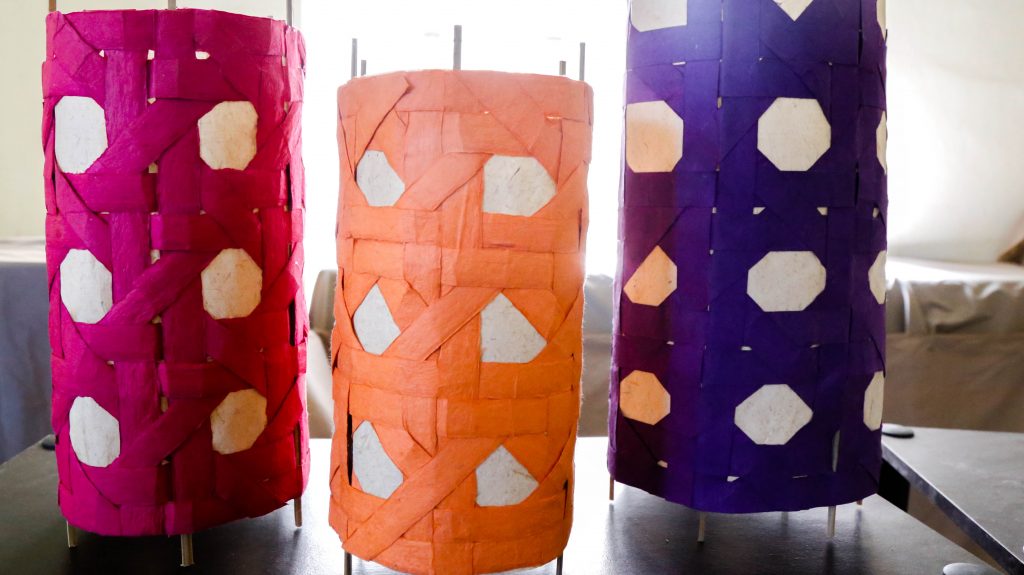HANDMADE MAKES ENTREP WELL-MADE
Not everyone is given the chance to turn his or her passion into profit. Lolita “Luchi” Cabanlet is one of those who have successfully turned something she loves into something profitable.
Luchi has always been interested in handicrafts. She started from scratch—quite literally. Scratch papers were the main raw materials that Luchi used for her business.
While Luchi decided to turn her hobby into a business, the road to success in her chosen enterprise, however, was not easy. She experienced pains and difficulties along the way.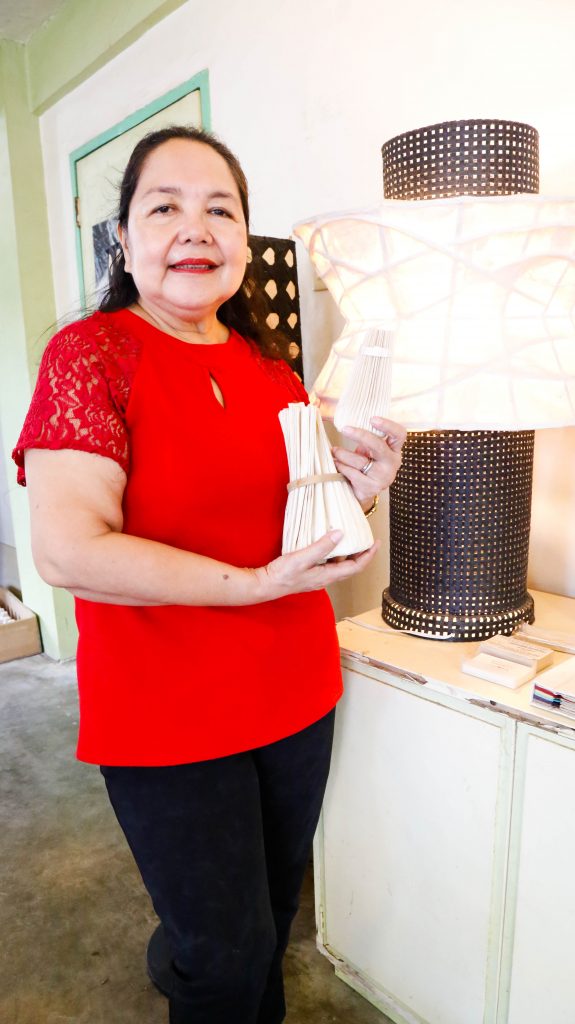
Serving Papers
Blending papers for creative cards and albums has been a typical hobby of Luchi even after she became a mother of four. Eventually, this craft skill was recognized by friends as she makes creative cards for their special occasions. Back then, Luchi was only using materials and equipment readily available in her house.
“I was only using a fruit blender before. I made cards and albums for friends who were getting married or having a birthday. I was really happy because they find it unique and they really liked it so much,” she recalled.
After getting encouraging words from her friends and relatives, Luchi finally decided to turn her hobby into business and established Cagayan De Oro Handmade Paper Craft in 1993. The Department of Science and Technology (DOST) noticed Luchi’s humble beginnings and helped her through the courses they offer. DOST also offered assistance for Luchi to acquire the necessary machines, enabling her to increase and improve the crafts production.
With a fiery spirit to expand creative skills, she enrolled in the Design for Export Program offered by the Center for International Trade Expositions and Missions (CITEM), the attached agency of the Department of Trade and Industry in charge of organizing local and international trade fairs showcasing the Philippines’ finest products and services. Through this training, Luchi hoped to gain more insights to products that appeal to a wide range of buyers.
“I first started with stationeries, journals, photo albums, and cards until that first set of products progressed to packaging, like gift bags and boxes of different sizes,” she fondly reckoned. “Now, we make lamps and home accessories,” Luchi added.
In this phase of entrepreneurial journey, the Department of Trade and Industry (DTI) stepped in and showed the way to expand her market through joining trade fairs. She then delved into a whole new kind of market experience – considering it a great challenge and opportunity that led her to where she is now.
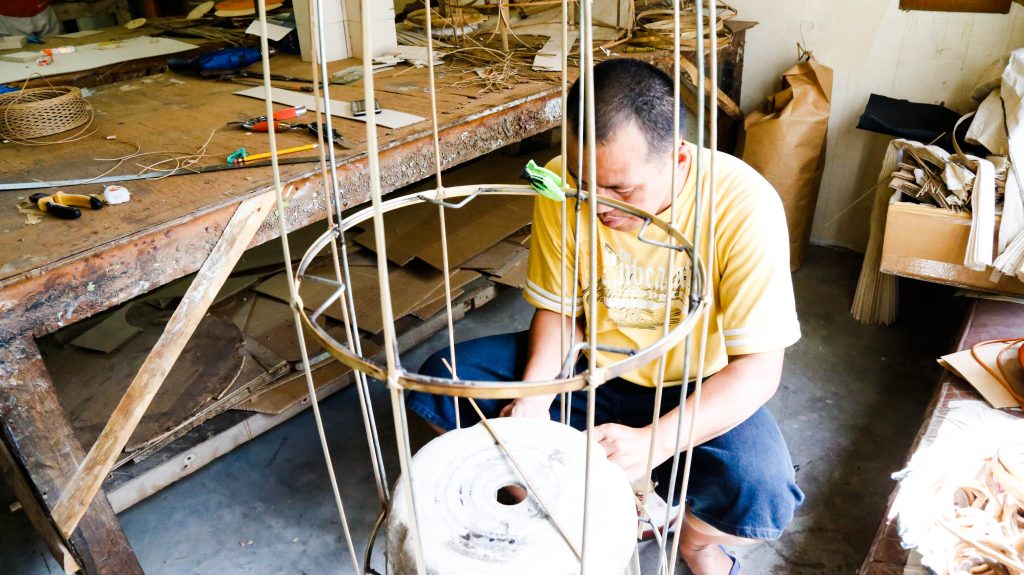
Crafts into the Spotlight
Nature plays a big role in Luchi’s work. Her crafts is in harmony with the natural, organic, and sustainable as she uses raw materials like abaca and cogon.
In 2000, she first started participating in trade exhibitions, however, her typical paper products had low sales. Despite this, she continued to develop and strategize more products until eventually, buyers from Western countries started to source from them.
“DTI gave us the opportunity to introduce our products to international buyers,” she shared.
However, the challenges did not stop there. In 2008, the global economic crisis hit Luchi’s business due to the significant decline in demand for export products.
Some businesses were shutting down, but Luchi remained determined to continue what she started. The crisis did not dishearten Luchi, but instead moved her to devote time into product development. She started creating home accents such as lamps, baskets, and accessories.
“While everyone else was closing their stores due to the economic crises, I was busy conceptualizing new products for our buyers,” Luchi said.
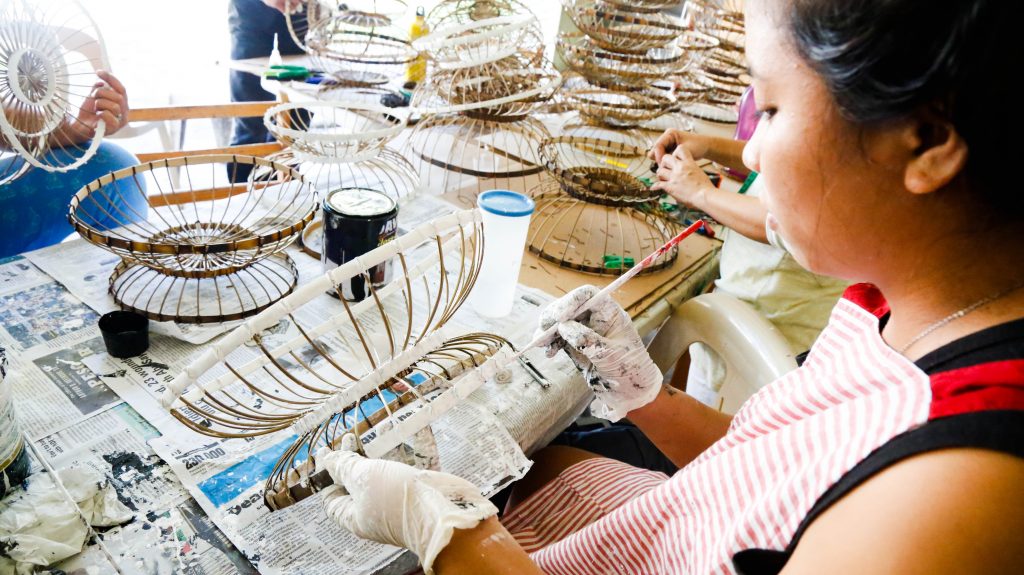
Luchi’s venture continued to grow over the years. Her customer base widened, which translated to higher product demand. This also meant increased requirements for the supply of raw materials, a new challenge that Luchi had to face.
“You can have beautiful designs. But in export, you’re supposed to come up with volumes. You need to have a critical mass of raw materials,” Luchi said.
She approached DTI for assistance in sourcing raw materials. The visit to DTI proved providential as the Department helped Luchi to meet quality suppliers of rattan, bamboo sticks, abaca, and other raw materials.
It takes a village to run a successful business. Luchi also collaborated with the indigenous people (IPs) and persons with disability (PWDs) groups to help her out. She also availed machines from the Shared Service Facilities (SSF) Project of DTI for faster and more efficient production.
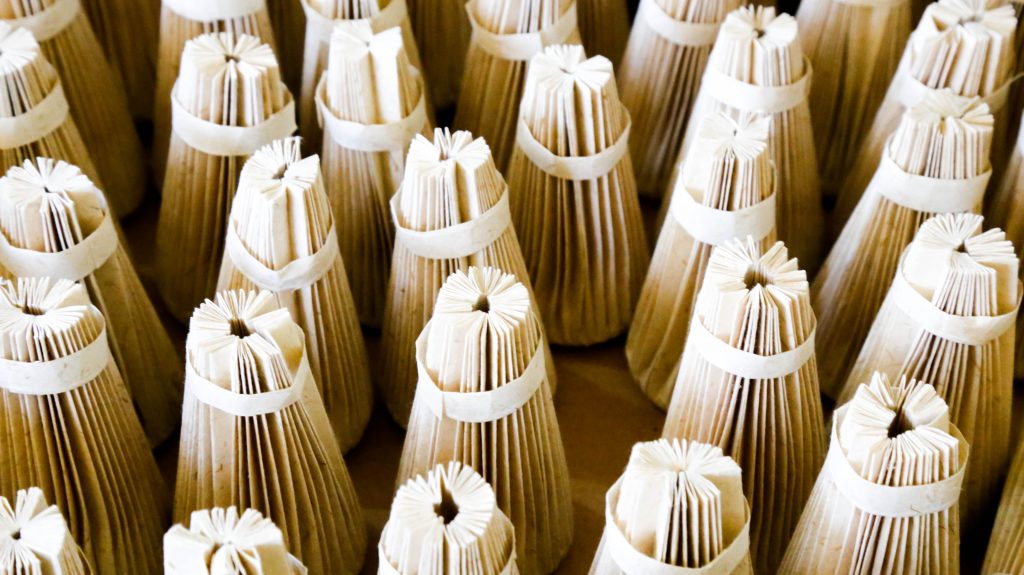
Looking Ahead
What was once a hobby eventually turned into a family business for the Cabanlets. Luchi’s family has always been there in every step of the way. Her four children now play major roles in the operations, design, production, and marketing aspects of the enterprise.
One of Luchi’s daughters is assisting in coming up with new designs and improving marketing channels through the distribution of brochures and maintenance of a website.
Luchi revealed plans to expand their work area and conduct more training programs to different groups who are now inspiring her to develop new indigenous products.
CDO Handmade Paper Products continues to participate in both local and international trade fairs organized by DTI. At present, they serve clients from various countries including those from the United States, Japan, France, Germany, Italy, Sweden, and Netherlands, among others.
As her advice to budding entrepreneurs, Luchi said: “Find your passion or what exactly makes you happy.”
